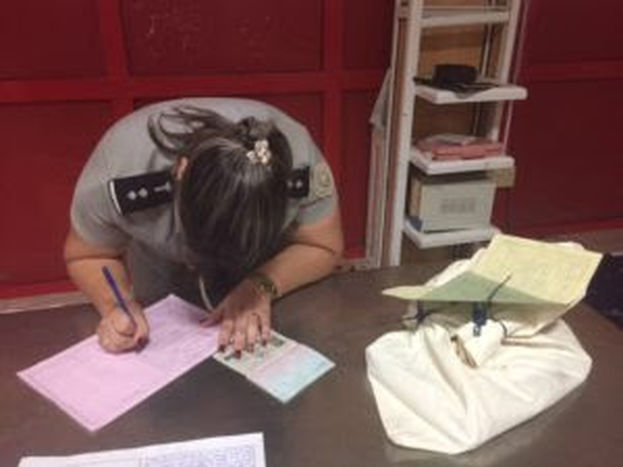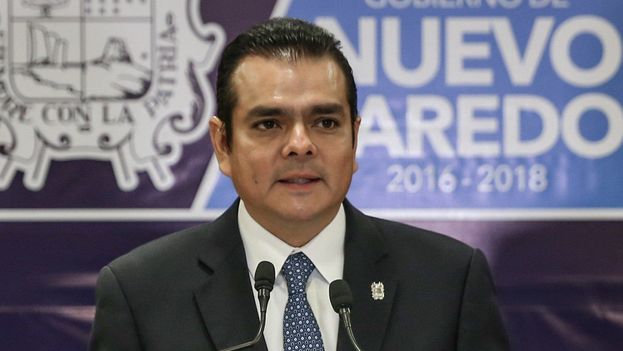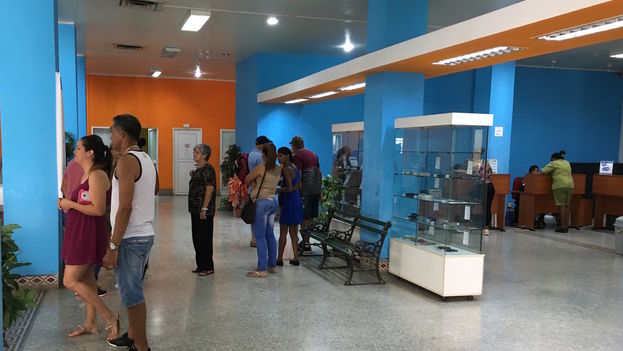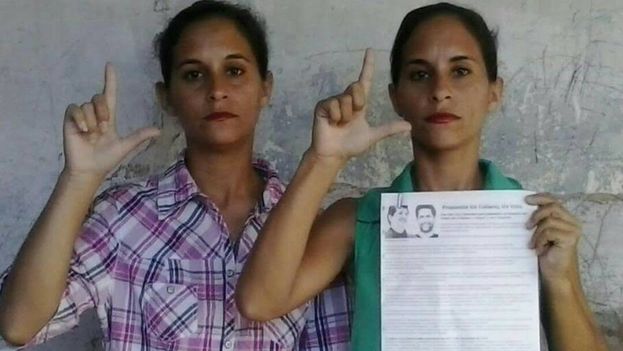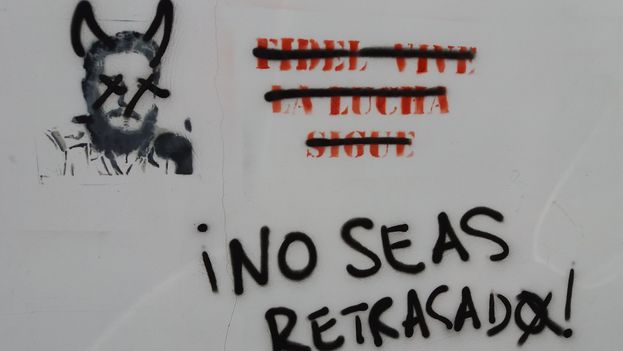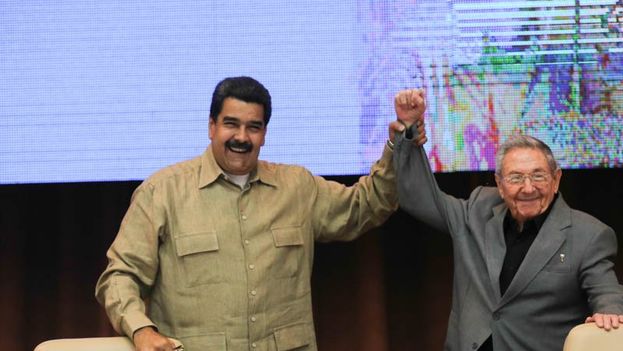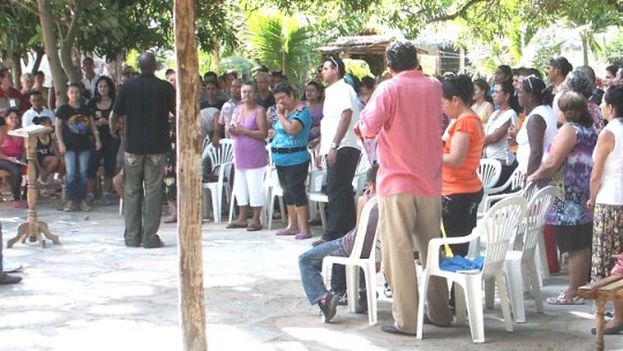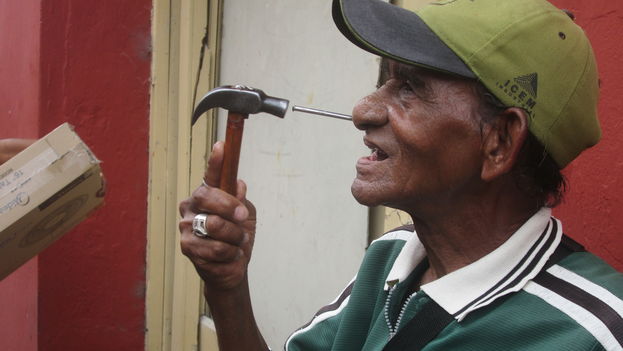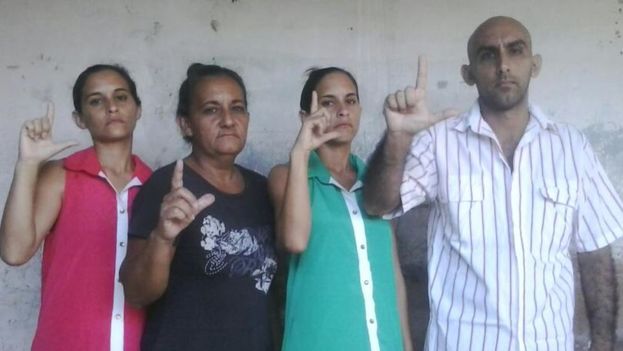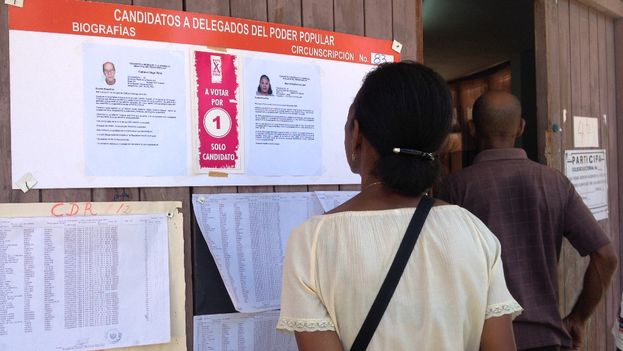However, on the eve of the start of the electoral process that will culminate with the formation of the ninth legislature of Cuba’s National Assembly of People’s Power and Raul Castro’s departure as president of the country, different opposition groups are taking the opportunity to submit themselves to the verdict of the ballot boxes. continue reading
The hope of competing before the electorate as an alternative found encouragement after the February 2015 announcement that there would be a new electoral law. The idea that the new legislation would necessarily be more flexible stimulated that part of Cuba’s opposition sector whose plans do not include “overthrow the dictatorship.”
Candidates for Change: “We have been monitoring the Accountability Assemblies of the district delegates where violations occur”
In October 2008 a small group of opponents from the town of Punta Brava grouped under the name of the Liberal Party of the Republic of Cuba launched the initiative to “accept the challenge of participating in the elections for district delegates.” The political scientist Julio Aleaga participated in this project as an adviser and, offering himself as an example, stood for office in the capital neighborhood of Vedado. On that occasion he obtained a single vote, his own.
Now Aleaga is leading the Candidates for Change project. In conversation with 14ymedio he explains that since 2014, as part of a maturation process, they have created an executive secretariat that organizes all work.
“We have been monitoring the Accountability Assemblies of the district delegates where violations occur, such as not respecting the requirements for a quorum, or declaring that the Assembly has been held when in fact it has not and, at a higher level, the reports on the number of Accountability Assemblies held in the country that do not correspond to reality.”
In addition to that work, he states that wherever there is a representative of Candidates for Change, they have presented the problems of the community in the Assemblies with proposals to help solve them.
This project also promotes the idea of encouraging Afro-descendants to engage inpolitical processes as decision-makers, to become active in politics and jointly promotes women’s participation in political life.
However the absence of the announced new Electoral Law has reduced the expectations of those hoping to see a rift in the single-party political life of Cuba. With regards to this, Aleago says, “Apparently the government ‘has dropped the ball’ and we have decided to work with the tools we have to build change instead of waiting for that change to take place in order to have better tools.”
Cuesta Morúa says that Otro 18 has “unwavering requirement that they not receive money for the process of putting themselves forwards”
Another initiative that focuses on the electoral issue is Otro18 (Another 2018). Their work is made up of three parts: one is the search for and preparation of candidates for the upcoming elections; another is the constitution of what have been called Citizen Observers of Electoral Processes (OPE); and, finally, the paving the way for the citizenry to receive the message of this platform.
Manuel Cuesta Morúa, an experienced opponent from the social-democratic persepctive, explains that for the task of finding and preparing candidates they have a road map and attitude guide to establish like-minded approaches. “In this sense,” he emphasizes, “we focus on an unwavering requirement that they not receive money for the process of putting themselves forward.”
With regards to the observers, it is a network that watches over the process at every stage. “We demand as a requirement for being a Citizen Observer that the person not be a candidate and maintain absolute neutrality.”
As a founding member of the Democratic Action Roundtable (MUAD), Cuesta has invited the organizations that meet as a part of that collection of organizations to include in each of their activities an “Otro18 agenda,” so that, regardless of the fact that each organization has its own platforms and programs, they also engage in this initiative. “In the coming months,” Cuesta says, “the entities involved in MUAD will begin to provide candidates, observers for the network and, of course, activists to mobilize the electorate.”
“We would love to have about 300 people occupying the seat of the public service, but reality tells us that this is a dream too far.”
On the subject of the promised new Electoral Law, Manuel Cuesta takes for granted that it will no longer be the one that governs the upcoming electoral process. “A clear signal is that they have created an application for mobile phones where the electoral process is explained through Law 72, which should have been repealed to make way for a more flexible one.”
Perhaps the most obvious question you can ask a politician who believes in electoral processes is what are their hopes of winning votes. Julio Aleaga affirms that they have now counted a hundred people ready to present themselves as candidates in all of Cuba, with potential candidates concentrated in Santiago de Cuba, Havana, Sancti Spíritus and Cienfuegos.
“We would love to have about 300 people occupying the seat of the public service, but reality tells us that this is a dream too far. We are betting on the electoral exercise, the breakdown of social neglect with respect to elections. The real result won’t be measured in the number of candidates chosen, but in raising public awareness that elections can be an engine for change,” he says.
Manuel Cuesta, for his part, takes a look at his agenda and explains: “As of the beginning of April, we have 83 people who have shown their willingness to stand as candidates, mainly distributed in Havana, Santiago de Cuba and Pinar del Río.”
Cuesta recognizes that it is difficult to speak of numbers in the question of predicting presumed victories, but one can venture how the proportions might turn out.
It is taken for granted that these elections will be neither free, nor plural, nor fair, but at least they will try to make them competitive
“The first step is to overcome the difficulty of the area assemblies, where the vote is by a show of hands. Of all those who can show up, be it 70 or 700, only 15% would have the opportunity to pass this test and get to the ballot. Then the Electoral Commissions of the municipality will prepare a biography* for each of them, with somber tones, as they did in the previous process with two candidates, whom they clearly defined as counterrevolutionary elements. At the polls, maybe 4% would be elected as a delegate, and with that we would be more than satisfied.”
For any of these projects, the main thing seems to be to open the game of competitive elections at the municipal level. It is taken for granted that these elections will be neither free, nor plural, nor fair, but at least they will try to make them competitive. In fact, so far the Government has refused to compete, even among themselves.
Among those who support overthrowing the regime, there are those who accuse these initiatives of “playing the game of dictatorship.” The truth is, those in command in Cuba do not show any enthusiasm for anyone to play any kind of game and they are repressing with great intensity all those involved in Candidates for Change, Otro18 and other projects along the same line.
Before the end of this year we will know if the effort undertaken made any sense.
*Translator’s note: Under Cuba’s current electoral law, candidates are forbidden to campaign. The only presentation of their candidacy is a one-page (or less) ‘biography’ with their photo and a statement about who they are — strongly focused on a list of the mass organizations they belong to — with no information about political opinions. This biography is not prepared by the candidate, but by the Electoral Commission. As noted in the article, two opposition candidates who made it to small-area local ballots in the last elections, were described in their biographies as “counterrevolutionary” with a brief detailing of the ‘bad’ things they have done, for example being “funded by foreign groups.” Neither won.
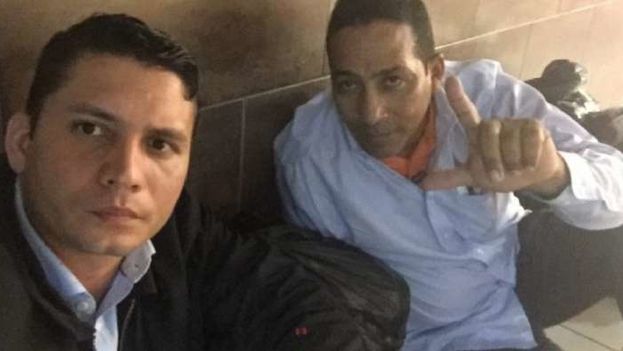
![]() 14ymedio, Havana, 6 April 2017 — Cuban opposition leaders were detained at Havana’s international airport on Thursday, when they arrived from Colombia, according to sources in the political movement Somos+ (We Are More) speaking with 14ymedio.
14ymedio, Havana, 6 April 2017 — Cuban opposition leaders were detained at Havana’s international airport on Thursday, when they arrived from Colombia, according to sources in the political movement Somos+ (We Are More) speaking with 14ymedio.